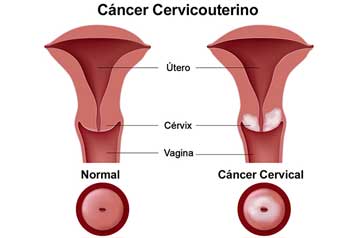Human papillomavirus (HPV) and Men
Genital human papillomavirus (HPV) is a common virus. Most sexually active people in the United States (U.S.) will have HPV at some time in their lives. There are more than 40 types of HPV that are passed on through sexual contact. These types can infect the genital areas of men, including the skin on and around the penis or anus. They can also infect the mouth and throat.
How do Men get human papillomavirus (HPV)?
HPV is passed on through genital contact—most often during vaginal and anal sex. HPV may also be passed on during oral sex. Since HPV usually causes no symptoms, most men and women can get HPV—and pass it on—without realizing it. People can have HPV even if years have passed since they had sex. Even men with only one lifetime sex partner can get HPV.
What are the health problems caused by human papillomavirus (HPV) in men?
Most men who get HPV (of any type) never develop any symptoms or health problems. But some types of HPV can cause genital warts. Other types can cause cancers of the penis, anus, or oropharynx (back of the throat, including base of the tongue and tonsils.) The types of HPV that can cause genital warts are not the same as the types that can cause cancer.
Note: Anal cancer is not the same as colorectal cancer. Colorectal cancer is more common than anal cancer, and is not caused by HPV.
How common are human papillomavirus (HPV) related health problems in men?
- About 1% of sexually active men in the U.S. have genital warts at any one time.
-
Cancers of the penis, anus and oropharynx are uncommon, and only a subset of these cancers are actually related to HPV. Each year in the U.S. there are about:
- 400 men who get HPV-related cancer of the penis
- 1,500 men who get HPV-related cancer of the anus
- 5,600 men who get cancers of the oropharynx (back of throat), but many of these cancers are related to tobacco and alcohol use, not HPV.
Some men are more likely to develop HPV-related diseases than others:
-
Gay and bisexual men (who have sex with other men) are about 17 times more likely to develop anal cancer than men who only have sex with women.
-
Men with weakened immune systems, including those who have HIV, are more likely than other men to develop anal cancer. Men with HIV are also more likely to get severe cases of genital warts that are harder to treat.
What are the signs and symptoms?
Most men who get HPV never develop any symptoms or health problems. But for those who do develop health problems, these are some of the signs and symptoms:
Genital warts:
- One or more growths on the penis, testicles, groin, thighs, or in/around the anus.
- Warts may be single, grouped, raised, flat, or cauliflower-shaped. They usually do not hurt.
- Warts may appear within weeks or months after sexual contact with an infected person.
Anal cancer:
- Sometimes there are no signs or symptoms.
- Anal bleeding, pain, itching, or discharge.
- Swollen lymph nodes in the anal or groin area.
- Changes in bowel habits or the shape of your stool.
Penile cancer:
- First signs: changes in color, skin thickening, or a build-up of tissue on the penis.
- Later signs: a growth or sore on the penis. It is usually painless, but in some cases, the sore may be painful and bleed.
Cancers of the oropharynx:
- Sore throat or ear pain that doesn't go away
- Constant coughing
- Pain or trouble swallowing or breathing
- Weight loss
- Hoarseness or voice changes that last more than 2 weeks
- Lump or mass in the neck
Is there a test for human papillomavirus (HPV) in men?
Currently, there is no HPV test recommended for men. The only approved HPV tests on the market are for screening women for cervical cancer. They are not useful for screening for HPV-related cancers or genital warts in men.
-
Screening for anal cancer is not routinely recommended for men. This is because more research is needed to find out if it can actually prevent anal cancer. However, some experts do recommend yearly anal cancer screening (anal Pap tests) for gay, bisexual, and HIV-positive men – since anal cancer is more common in these men.
Anuncios - There is no approved test to find genital warts for men or women. However, most of the time, you can see genital warts. If you think you may have genital warts, you should see a health care provider.
- There is no test for men to check one’s overall “HPV status.” But HPV usually goes away on its own, without causing health problems. So an HPV infection that is found today will most likely not be there a year or two from now.
- Screening tests are not available for penile cancer.
You can check for any abnormalities on your penis, scrotum, or around the anus. See your doctor if you find warts, blisters, sores, ulcers, white patches, or other abnormal areas on your penis—even if they do not hurt.
Is there a treatment or cure for human papillomavirus (HPV)?
There is no treatment or cure for HPV. But there are ways to treat the health problems caused by HPV in men.
Genital warts can be treated with medicine, removed (surgery), or frozen off. Some of these treatments involve a visit to the doctor. Others can be done at home by the patient himself. No one treatment is better than another. But warts often come back within a few months after treatment—so several treatments may be needed. Treating genital warts may not necessarily lower a man’s chances of passing HPV on to his sex partner. If warts are not treated, they may go away on their own, stay the same, or grow (in size or number). They will not turn into cancer.
Cancers of the penis, anus, and oropharynx can be treated with surgery, radiation therapy, and chemotherapy. Often, two or more of these treatments are used together. Patients should decide with their doctors which treatments are best for them.
Are there ways to lower my chances of getting human papillomavirus (HPV)?
A safe and effective HPV vaccine (Gardasil) can protect boys and men against the HPV types that cause most genital warts and anal cancers. It is given in three shots over six months. [See vaccine recommendations below.]
Condoms (if used with every sex act, from start to finish) may lower your chances of passing HPV to a partner or developing HPV-related diseases. But HPV can infect areas that are not covered by a condom—so condoms may not fully protect against HPV.
Because HPV is so common and usually invisible, the only sure way to prevent it is not to have sexual contact. Even people with only one lifetime sex partner can get HPV, if their partner was infected with HPV.
HPV vaccines
ITwo vaccines—Cervarix and Gardasil—are available to prevent the HPV types that cause most cervical cancers and anal cancers. One of the HPV vaccines, Gardasil, also prevents vulvar and vaginal cancers in women and genital warts in both women and men. Only Gardasil has been tested and licensed for use in males. Both vaccines are given in a series of 3 shots over 6 months.
I just found out that my partner has HPV …
What does it mean for my health?
Partners usually share HPV. If you have been with your partner for a long time, you probably have HPV already. Most sexually active adults will have HPV at some time in their lives. Although HPV is common, the health problems caused by HPV are much less common.
Condoms may lower your chances of getting HPV or developing HPV-related diseases, if used with every sex act, from start to finish. You may want to consider talking to your doctor about being vaccinated against HPV if you are 26 years or younger. But not having sex is the only sure way to avoid HPV.
If your partner has genital warts, you should avoid having sex until the warts are gone or removed. You can check for any abnormalities on your penis, such as genital warts. Also, you may want to get checked by a health care provider for genital warts and other sexually transmitted disease (STDs).
What does it mean for our relationship?
A person can have HPV for many years before it is found or causes health problems. So there is no way to know if your partner gave you HPV, or if you gave HPV to your partner. HPV should not be seen as a sign that you or your partner is having sex outside of your relationship.
I just found out I have genital warts … What does it mean for me and my partner?
Having genital warts may be hard to cope with, but they are not a threat to your health. People with genital warts can still lead normal, healthy lives.
Because genital warts may be easily passed on to sex partners, you should inform them about having genital warts and avoid sexual activity until the warts are gone or removed. There are ways to protect your partner (see above).
You and your partner may benefit from getting screened for other STDs.
If used with every sex act, male latex condoms may lower your chances of passing genital warts. But HPV can infect areas that are not covered by a condom—so condoms may not fully protect against HPV.
It is important that sex partners discuss their health and risk for STIs. However, it is not clear if there is any health benefit to informing future sex partners about a past diagnosis of genital warts because it is not known how long a person remains contagious after warts are gone.
Source
Centers for Disease Control and Prevention
GeoSalud, January 23, 2014
Related topics
-
Human Papillomavirus
-
Human Papillomavirus Vaccines: Questions and Answers
-
Human Papilloma Virus Signs and Symptoms
-
Human Papillomavirus Screening
-
Cervical Cancer Screening Tests
-
What Does My Pap Test Result Mean?
-
What Does My HPV Test Result Mean?
-
HPV Test FDA's Approval
-
Human Papillomavirus Treatment
-
Human Papillomavirus Prevention
-
Human Papillomavirus and Men
-
HPV and Men
-
Human Papillomavirus Infection Treatment
-
Human Papillomavirus and Genital Warts
Anuncios -
Human Papillomavirus Associated Cancers
United States, 2004–2008 -
Preventing Cervical Cancer Worldwide (PDF document)






